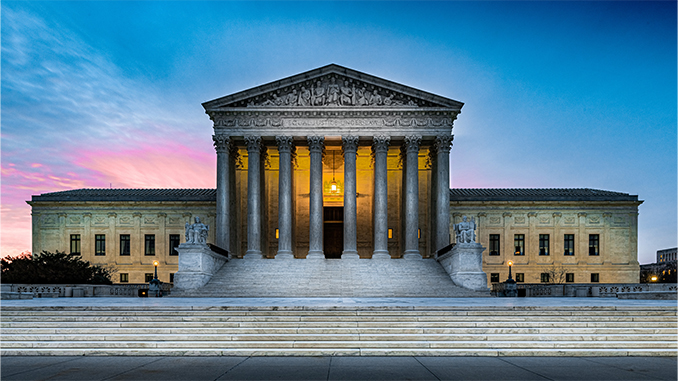Supreme Court overturns ‘Chevron deference’
The Supreme Court’s June 28 decision to overturn so-called “Chevron deference” in a landmark case will restrict the ability of government regulators to act outside of Congressional or federal judiciary oversight, likely altering the scope and power of regulations impacting motorcyclists, from off-highway access to the right to repair.

Dating to a 1984 Supreme Court decision, Chevron’s deference referred to the directive that federal courts accept regulators’ judgments regarding relevant law and resulting regulations. This made challenging rules, such as land closures impacting motorcyclists, difficult in the courts.
“Overturning the Chevron deference makes it much harder for the executive branch to implement onerous or misguided regulations,” says Nick Haris, AMA director of government relations. “The list of bureaucratic fumbles affecting motorcyclists is long, from the Department of Health and Human Services flipping Congressional intent in the 2000s, paving the way for health insurance discrimination of motorcyclists, to the more recent ‘lead law’ interpretation that temporarily outlawed youth off-highway vehicles. Working with Congress, the AMA defeated both dangerous decisions, but it took years of work and significant resources.”
“In a post-Chevron world, we anticipate having more leeway to fight, but we are also cautious that the road ahead is largely unknown. We will continue to monitor the effects of this decision and update AMA members on how it will impact them in the future.”
Nick Haris, AMA director of government relations
The Supreme Court overturned the 40-year administrative law precedent in a 6-3 decision, eliminating the latitude given government agencies to interpret ambiguous laws through regulations. The decision shifts the responsibility of deducing laws and Congress’ intent away from government agencies to the independent judgment of courts.
The American Motorcyclist Association supports this ruling and has a long history of engaging on issues potentially impacted by the Chevron deference ruling. The association has fought the Environmental Protection Agency (EPA) multiple times and took on the Internal Revenue Service, getting it to rewrite its regulations to allow proper sales tax deductions for motorcycles.








